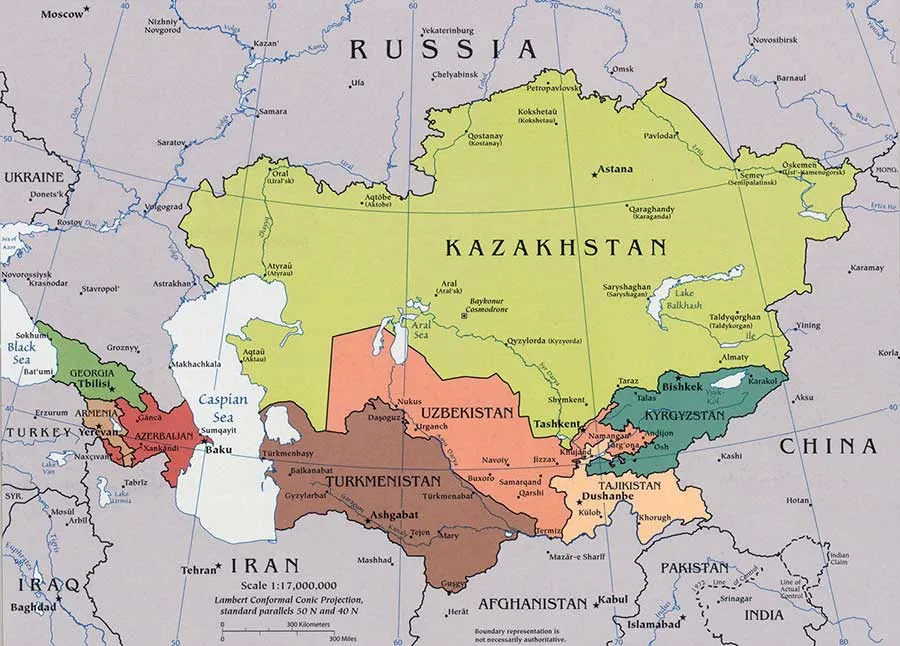Three decades post the Soviet Union’s dissolution, Central Asia and the South Caucasus are on a transformative economic trajectory.
Historically tied to Russian production, they’ve since sought independence, significantly aided by Gulf investments.
Kazakhstan, Turkmenistan, and Azerbaijan capitalized on their rich oil and gas reserves while also facing challenges due to their landlocked nature and dependency on Soviet-era pipelines.
Their solution is infrastructure diversification, including collaborations with China and new European routes.

However, Kazakhstan and Azerbaijan still majorly rely on Russia and Turkey for exports.
With the 2016 oil price drop, economic diversification became vital.
Gulf nations, keen on their own diversification, have become significant regional investors.
Notably, the UAE and Saudi Arabia have bolstered their Eurasian investments, seen in projects like the UAE’s initiatives in Central Asia and Saudi Arabia’s participation in the TAPI pipeline.
The South Caucasus, particularly Georgia, and Azerbaijan, experienced a tourism spike, largely from the Middle East.
The region’s position as a transit hub connecting Europe, China, and Russia offers enormous investment opportunities, underscored by major infrastructure projects.
Recent developments saw a landmark summit in Saudi Arabia, deepening Central Asia-Gulf ties.
This collaboration is fortified not just by economic interests, but also by deep-rooted religious ties, as evidenced by Qatar’s role in constructing Tajikistan’s grand mosque.
Future-focused, these nations are exploring tourism enhancements like visa exemptions and increased flight connectivity.
Central Asia’s prominence is set to grow in the geopolitical sphere, with dominant players like China and Russia.
This evolving partnership anticipates its next summit in Uzbekistan, signaling further consolidation and growth.

